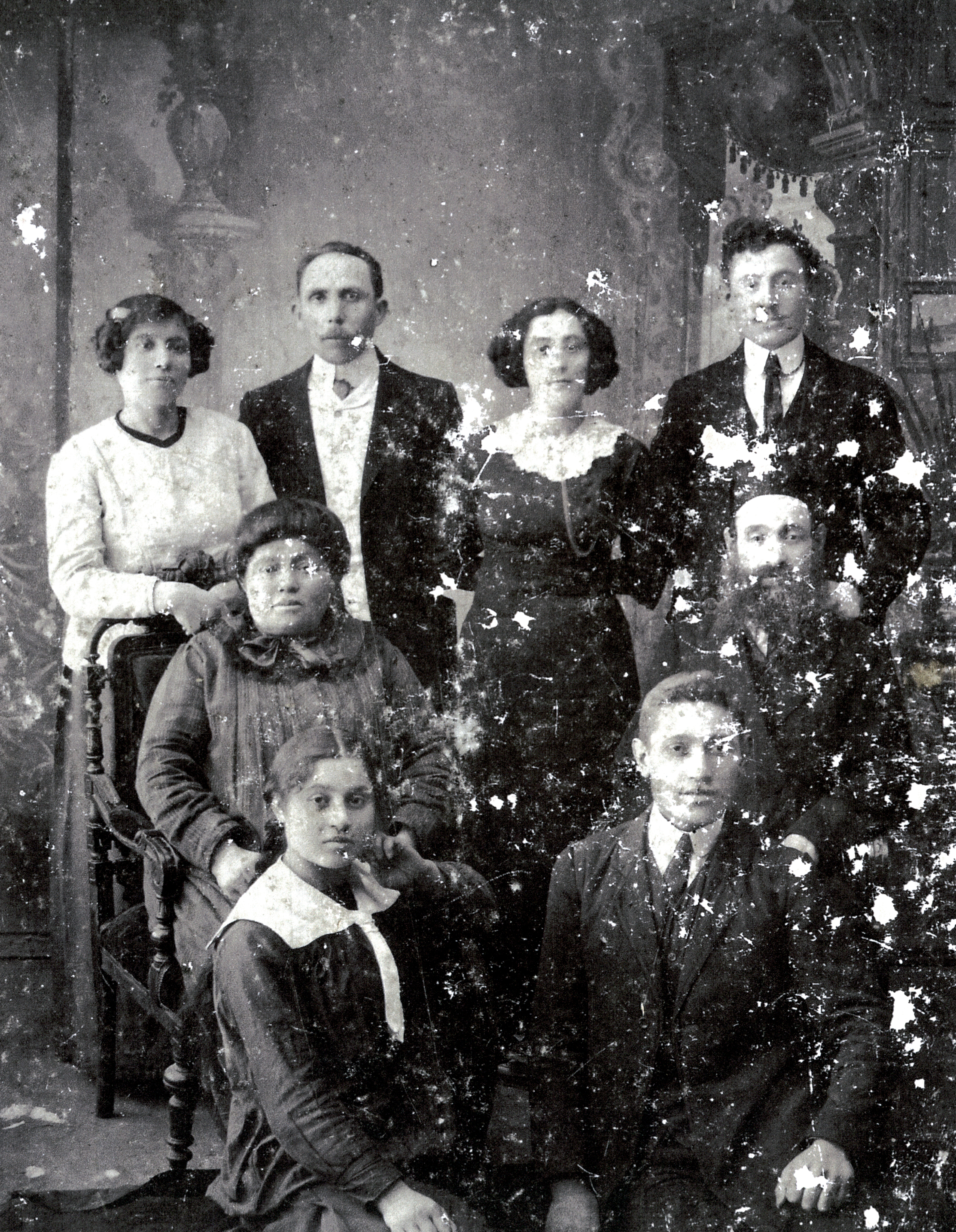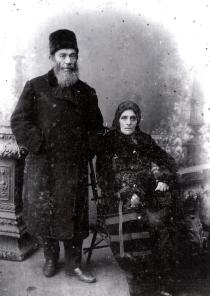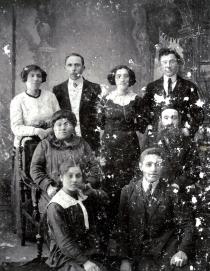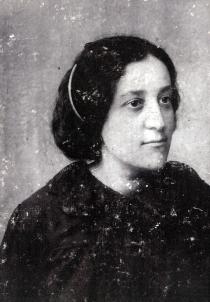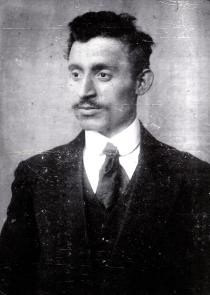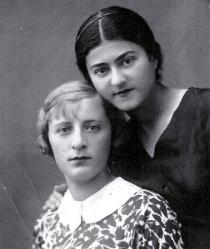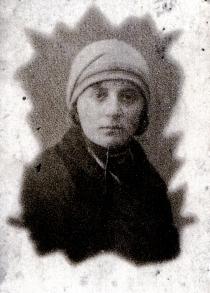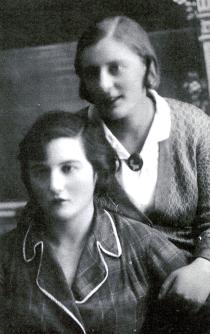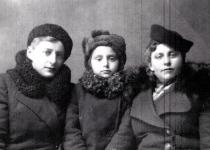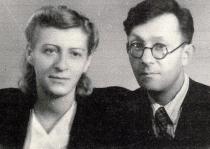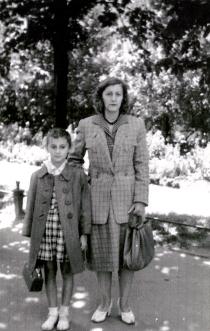My father's parents and their children are pictured in this photo taken in 1912 in Bershad. Seated in the second row are my grandmother, Tuba-Leya Veltman [nee Shnaiderman], and my grandfather Aron-Shloime Veltman. I don?t know the names of the other people in the photo.
My grandfather was born in the 1860s was a melamed in the cheder. My grandfather was a very educated man for his time. He had excellent knowledge of the Talmud and the Torah, and taught children to read in Hebrew. He was a very well respected teacher in Bershad. My grandfather's family lived in a small house near the synagogue. There was a little porch up two or three stairs, and two rooms in the house. They had quite a few children. There was not enough space for them. My grandfather taught children from the whole town in one of the rooms. I visited my grandfather and grandmother in the 1920s. By that time, grandfather was an old man already. He didn't work any more. He showed me the room that had previously served as a cheder. There were long tables and benches in it. Later, I read in Sholem Aleichem's books that teachers used to beat the children in cheder, but I just couldn't imagine my kind grandfather beating anyone.
When I knew him, grandfather was an old man with a gray beard and yarmulka. He spoke only Yiddish and prayed a lot. My grandmother asked us to be very quiet while he was praying. He went to synagogue almost every day. He had a seat by the Eastern wall - this was a place of honor. I remember him praying in his room with his face turned to the wall, with little cubes [tefillin] on his hands and forehead, and wrapped in a tallit.
He used to play with me and tell me jokes. He spoke Yiddish to me. My grandfather not only knew all the Jewish holidays, but could also explain the meaning of every holiday. I used to visit my grandparents in the summer. I remember a Jewish holiday called Shavuot. My grandfather didn't go to bed on the night of this holiday, but stayed up all night reading the tikkun leil Shavuot , which contains the main ideas and provisions of both the Written and Oral Law. I was given scissors and colored paper to cut out patterns to decorate the windows. My grandmother cooked dairy meals on this day. I remember eating pancakes stuffed with cottage cheese dipped in honey. My grandfather was sitting at the table saying that the Torah was as sweet to us as honey.
My grandfather was a very kind man. He was 'loyal,' as would be proper to say nowadays. He understood that children had to go their own way and live their own lives. He never forced his children to practice religion. My grandfather had a large collection of religious books in Hebrew. His conduct of Hebrew was very good. I didn't understand what these books were about. I remember my mother showing me poems by Mandelshtam and Ginsburg, one of the first enlightened Jews in Russia, and also the History of Peter the Great in Hebrew. I don't know whether my grandfather's children read those books, too. I also remember Russian books by Pushkin, Lermontov and Gogol in imprinted golden bindings.
My grandfather dearly loved his wife Tuba-Leya Veltman [nee Shnaiderman]. She was also born in Bershad in 1865. She also came from a religious family. On her wedding day she had her hair shaved according to the Jewish tradition and wore a wig for the rest of her life. I remember her wearing a wig and a white shawl. My grandmother was a very smart woman. She was fat and sickly. She had hypertension and a poor heart. She had a terrific sense of humor. My grandfather used to make her a cup of tea with sugar and would hand it to her. I believe it shows how nicely he treated her. She was always busy doing work around the house, cooking delicious Jewish food and pastries.
The Germans killed my grandmother and grandfather in 1942. When the war began their younger son Ershl came to Bershad to take them to evacuation. My grandfather said that because he and grandmother were old already and because grandmother was a very ill woman, they were going to stay. Ershl came to Bershad after the war and people told him that like many other Jews in the ghetto his parents were shot by the Germans.
